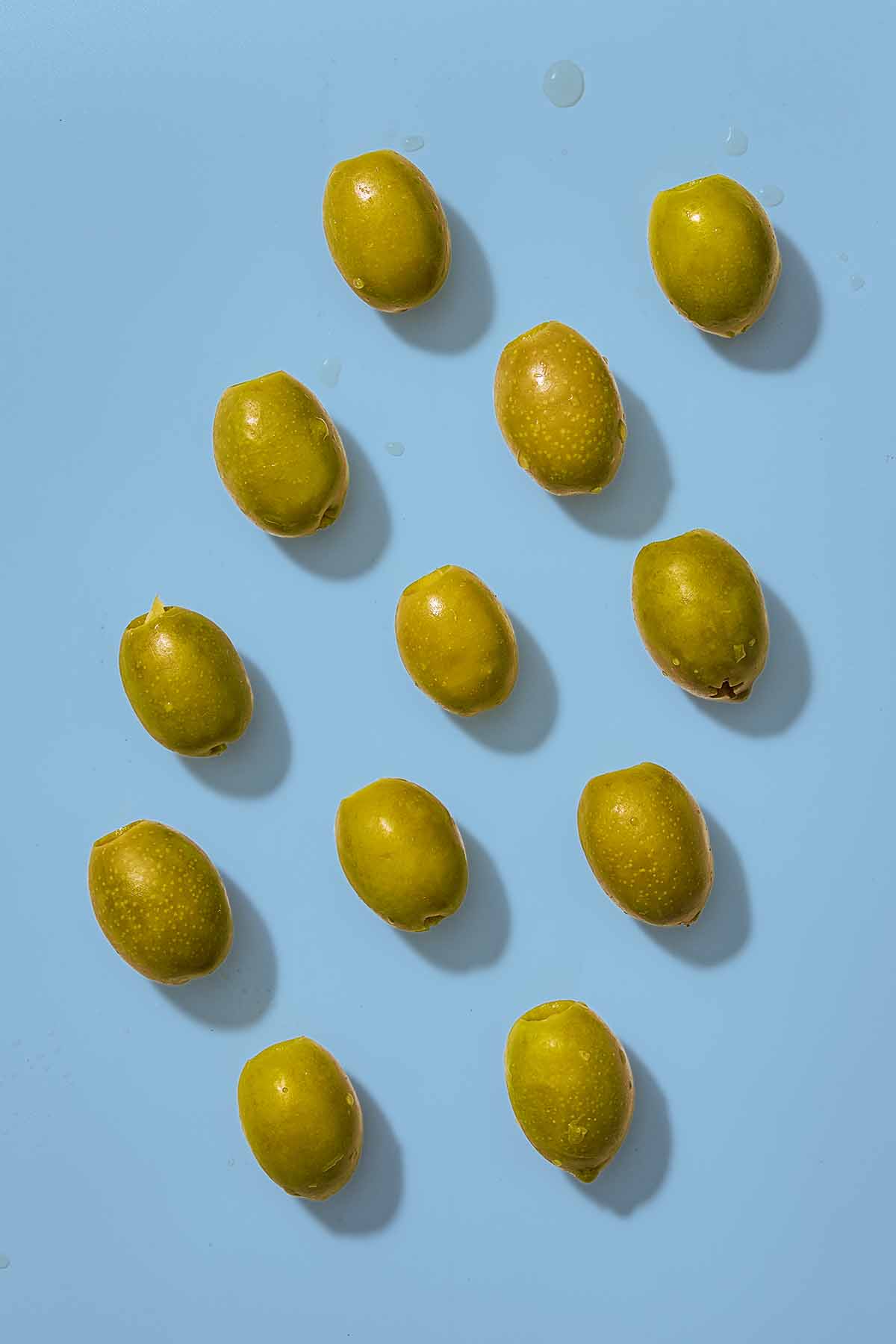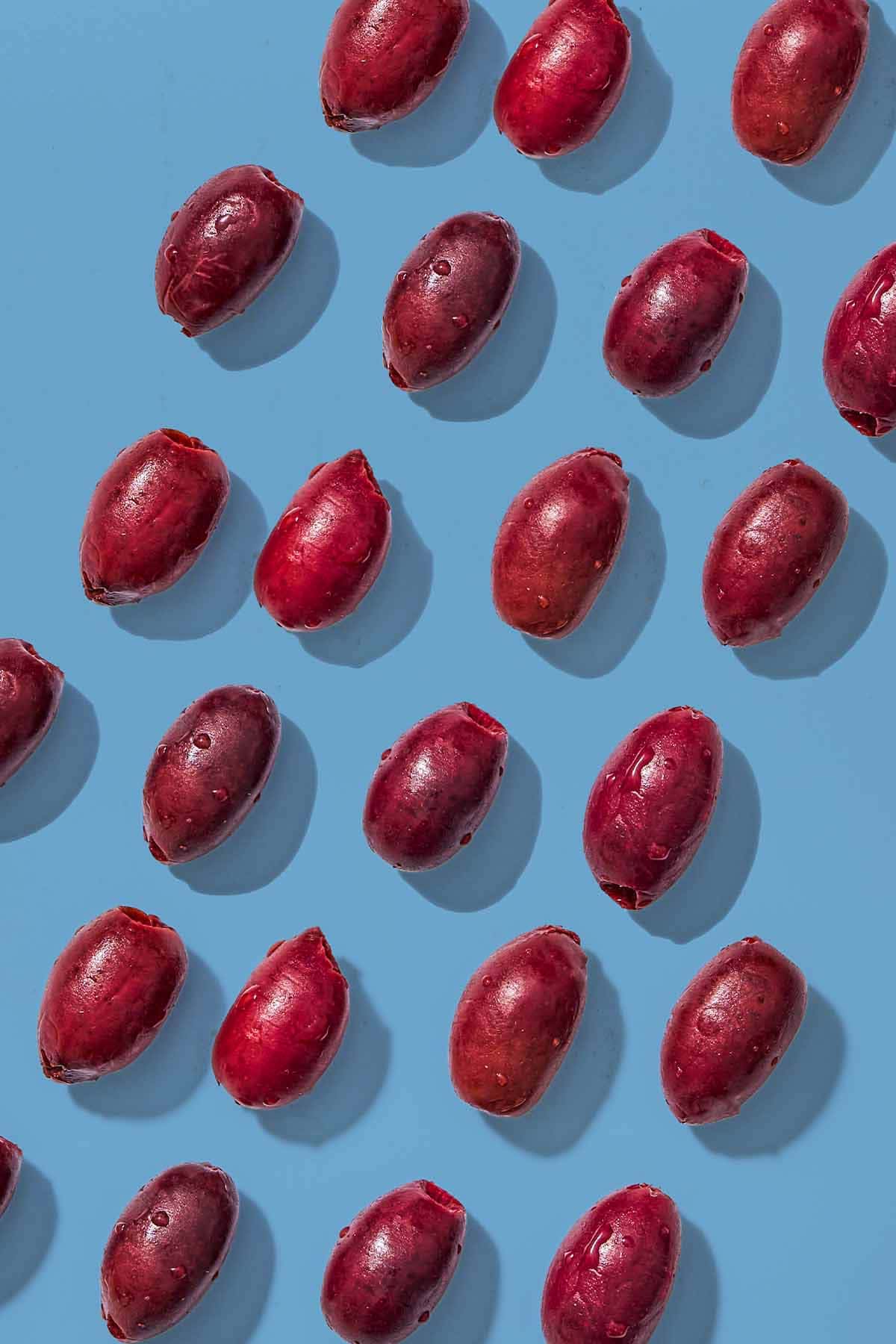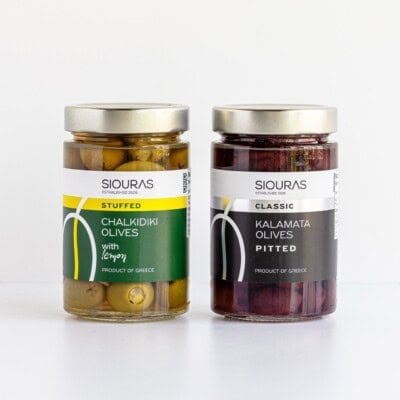The olives are a central component of the Mediterranean diet, both entire and pressed in olive oil. But their rich, brindle and often intensely salty flavor can let you ask you: are the olive trees healthy? Continue reading to get to know the health benefits of olive trees and the many delicious ways to eat them!

I loved the olives since childhood, especially at my grandmother’s table where they were part of the tray for Christmas horses. My sisters and I slipped on their fingers before putting them in the mouth. That early love has remained with me and today the olives remain a favorite ingredient in my kitchen.
As a recorded dietician specialized in the Mediterranean diet, this love served me well! The olives remain a fundamental ingredient and a firm point of the dispensation of trust in the region, where you will find them in everything, from vibrant salads and rustic focaccia to salted pizzas. They are simmer with chicken and fish, mixed in tapeadi and sprinkle through salami and cheese boards.
These manufacturers of small but mountainous flavors are more than delicious! The olives make an impressive nutritional punch, providing healthy monounsaturated fats and powerful antioxidant. They are also one of the oldest forms of fermented foods that provide probiotics!
So we enter the sharpness of what science says about the benefits of the olive trees, as well as some frequent questions about the olives, such as how to keep olives, what exactly I am Olives, our favorite olives recipes and more.
Summary


5 Benefits for the Health of Olives
Olives are an addition dense with nutrients to most of any salty meal. Here are five of the best advantages of the olives:
- Heart Health: The olives are rich in mono-non saturated fatty acids (mufies), in particular oleic acid, which It helps to reduce LDL cholesterol (“bad” cholesterol) And it can improve and support blood pressure levels.
- Source rich in antioxidants: Olives are a rich source of polyphenols, including Oleuropein and hydroxyitosol, as well as vitamin E, an important antioxidant that protects cells from damage. Together, these compounds help reduce oxidative stress And it can reduce the risk of chronic diseases. In addition, the content of oleic acid and powerful antioxidant in the olives It can help reduce inflammation and oxidative damagepotentially lowering the risk of certain tumors.
- Blood sugar balance: Healthy fats and fibers in olives can help slow down digestion, which can Helping to manage post-stake blood sugar levels. In addition, polyphenols in olive trees have anti-inflammatory effects, which can Lower the risk of developing type 2 diabetes.
- Intestinal health: The fermented olives contribute to beneficial bacteria to your intestinal microbioma, which can promote digestive health and support immune function.
- Cognitive health: Early search It suggests a link between Oleocantalo, a compound present in olive oil and a reduced cognitive decline. Although promising, further research is needed to confirm these effects.


What are olives?
The olives are classified as Drupe, together with peaches, plums, cherries and other stone fruits, a fruit family characterized by a hard stone in their center (in other words, the pit). There are many varieties of olives, each with its own flavor, size and unique consistency, which depend on where they originated and how they are prepared.
The olive tree is one of the biggest trees known. Although he believed he had originated in Africa, in the end he spread in Morocco, Algeria and Tunisia, before making his way in Greece, Italy and in other Mediterranean countries.
Variety of olives: green or black olives
Green olives are collected before they are ripe, while black olives have completely accrued. Once the olives are collected, they are transformed into oil or cured. There are various methods to treat olives, including salary, dry treatment (using salt), water treatment, oil oil and the tip of liscivia. These techniques influence the taste and the probiotic potential.
You will find the olives labeled by country, such as the Greek, or for their name of specific variety, such as Kalamata. Many varieties of olives take their name from their place of origin, like Greek Kalamata or Portuguese Black. The olives are available in a variety of shades, ranging from green to black.


How to enjoy the olives on the Mediterranean diet
While the olives are rich in healthy fats, they are also often dense and sodium, therefore the size of the aware portions are fundamental. I usually recommend enjoying about 1/4 cup, or a handful, per day.
How to keep olive trees
Keep non -open olive jars in a cool and dark place, such as a pantry or a belief. Shop open the olives in the refrigerator in a hermetic container. Make sure that the olives remain completely immersed in brine or oil to prevent them from drying out. It throws the olives away if they develop a smell, mold or slimy consistency.
Enjoy the olives in these recipes!
Browse everything Mediterranean recipes.
Visit Our shop.


Package and save!
Bring the authentic flavors of Greece to your table with Greek kalamata olives and green chalkidiki olives stuffed with lemon.




